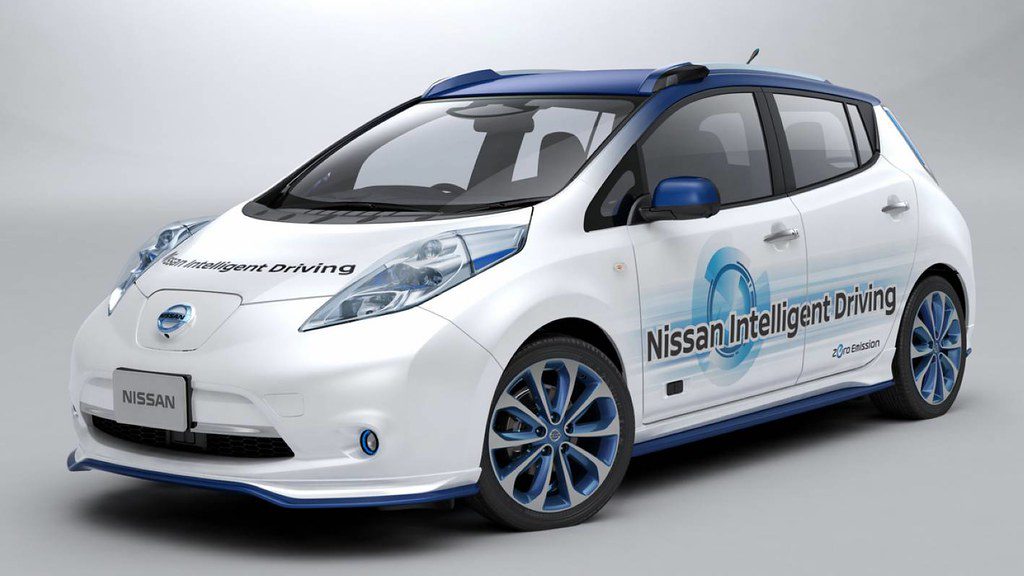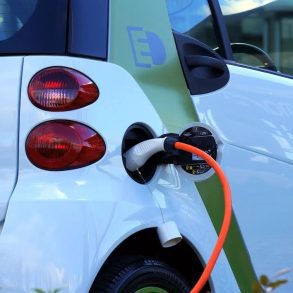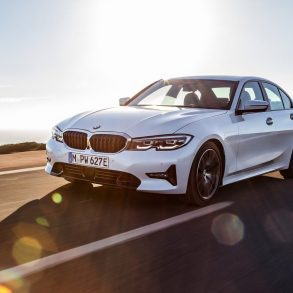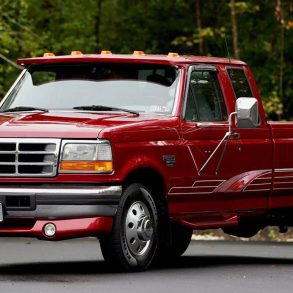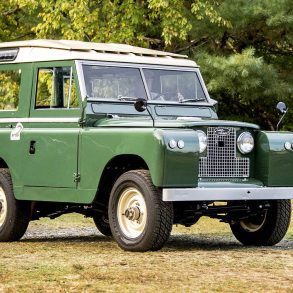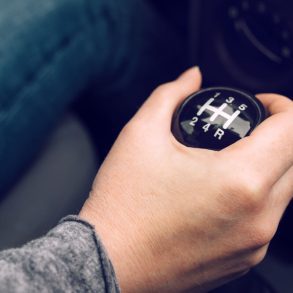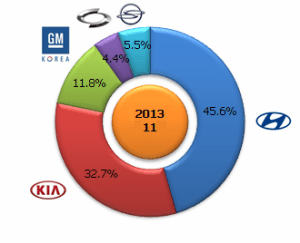
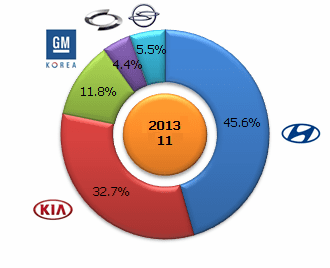 Renault Samsung Motors, the South Korean subsidiary of the French carmaker, is the least successful of the South Korean domestic automakers, the brand has struggled in recent years because of bland and uninspiring products, but is going through a transition period, with the restructuring of its sales network and product offering.
Renault Samsung Motors, the South Korean subsidiary of the French carmaker, is the least successful of the South Korean domestic automakers, the brand has struggled in recent years because of bland and uninspiring products, but is going through a transition period, with the restructuring of its sales network and product offering.
Renault Samsung was once the number two brand in its home market, behind Hyundai-Kia, but has been passed in recent years by GM Korea (the former Daewoo now turned Chevrolet) and SUV maker SsangYong, owned by Mahindra & Mahindra of India, as sales of Samsung branded vehicles have fallen almost 60% in two years time, from 161.917 in 2010 to just 65.691 in 2012.
Its main competitor Hyundai-Kia, with a local market share of over 75%, exports to countries all over the world, and has economies of scale to undercut Samsung’s prices in its home market. And with a production of around 130.000 units in 2012 in a factory with a capacity of 300,000 units annually, it’s hard to make a profit.
Bright future for Renault-Samsung?
But a change of fortune may be in the making.
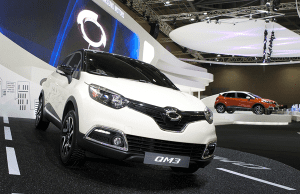
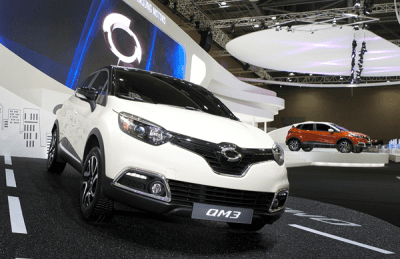 The recent successful introduction of a Samsung branded version of the Renault Captur, named Samsung QM3, looks hope giving. The first 1.000 units of the small SUV were sold out in 7 minutes, with another 4.000 orders signed in the following two weeks. It is the first Samsung vehicle not built in South Korea, but that may change if sales remain strong, as shipping costs from Europe and import duties in South Korea make it hard to turn a profit on these sales.
The recent successful introduction of a Samsung branded version of the Renault Captur, named Samsung QM3, looks hope giving. The first 1.000 units of the small SUV were sold out in 7 minutes, with another 4.000 orders signed in the following two weeks. It is the first Samsung vehicle not built in South Korea, but that may change if sales remain strong, as shipping costs from Europe and import duties in South Korea make it hard to turn a profit on these sales.
The factory in Busan still has capacity available for the Captur/QM3, even when production of 80.000 units per year of the Nissan Rogue starts in 2014. This SUV from Renault’s partner Nissan will be exported to the United States, and Samsung plans to make its next-generation QM5 SUV (also sold as Renault Koleos in Europe) on that same platform. Besides that, Mitsubishi announced recently it has an agreement to sell two Samsung built sedans under its Mitsubishi brand in the United States and other markets. No sales projections have been announced yet, but Samsung will be happy with any added volume to improve the productivity and economies of scale of its plant.
This year, the head of Volkswagen in South Korea, Park Dong-hoon, switched to Renault-Samsung Motors to become sales and marketing chief of Samsung. Under his lead, the German brand’s annual sales in Korea has surged from 1.635 in 2005 to 18.395 cars in 2012. He is confident that strong new products and a focus on diesel and electric vehicles will help Samsung regain some of the ground lost, together with a focus on quality and customer satisfaction. In fact, Samsung has led the South Korean customer satisfaction and reliability surveys for many years on a row already.
The sales chief made it clear that the company had no plan to import other Renault-Nissan alliance models beside the Captur /QM3. That means no Dacia products either, while the Sandero/Logan might have been a good contender against the Kia Pride (Rio). But Park Dong-hoon says: “Korean production of the new Rogue is purely aimed at increasing output capacity at the Busan plant. In order to gain more profits, we need to develop our own new car through Renault Design Asia,”.
Change the Samsung brand to Renault
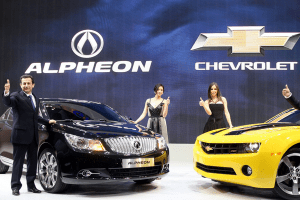
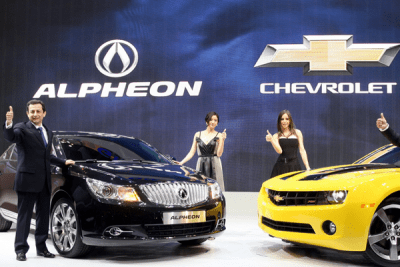 Import brands in Korea have a more cachet than domestic brands, as it is in most countries. That’s why General Motors dropped the local Daewoo name in favor of its global Chevrolet brand in 2010, when it decided to reinvigorate its South Korean subsidiary. Thanks to the introduction of new models, and possibly also the name change and the accompanying image improvement, its market share of the South Korean market has improved from 8,1% in 2010 to 11,8% in 2013.
Import brands in Korea have a more cachet than domestic brands, as it is in most countries. That’s why General Motors dropped the local Daewoo name in favor of its global Chevrolet brand in 2010, when it decided to reinvigorate its South Korean subsidiary. Thanks to the introduction of new models, and possibly also the name change and the accompanying image improvement, its market share of the South Korean market has improved from 8,1% in 2010 to 11,8% in 2013.
In 2000, when Renault bought Samsung Motors off the struggling Samsung conglomerate, it was agreed to keep the Samsung brand, which had was thought to have more standing in the Korean market than Renault. The license agreement for the Samsung brand runs through 2020, but last year cracks were already showing. That’s not hard to understand as Samsung Electronics has become a worldwide respected brand, and a struggling car brand at home might damage its reputation.
So if the Renault-Nissan alliance is serious about the revitalization of Samsung Motors, they may want to consider changing the name to Renault now.
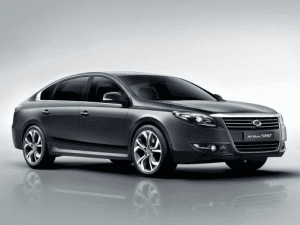
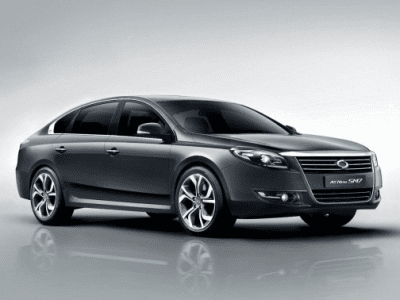 The first reason is because the Samsung car brand, despite good customer satisfaction and quality ratings, is not up to the task to fight Hyundai-Kia as a local competitor, and introducing Renault as a French/global brand with local production, might help them in the same way the change from Daewoo to Chevrolet has helped GM.
The first reason is because the Samsung car brand, despite good customer satisfaction and quality ratings, is not up to the task to fight Hyundai-Kia as a local competitor, and introducing Renault as a French/global brand with local production, might help them in the same way the change from Daewoo to Chevrolet has helped GM.
Secondly, since Samsung Electronics is already unhappy with the license agreement for the Samsung Motors brand, it is very likely they will not renew the agreement, and Renault-Nissan will have to change the name anyways. What would be the smarter thing to do? Drop the struggling Samsung brand and invest in new, better products and in marketing the Renault brand at the same time? Or invest millions to improve the Samsung brand and its image, and then drop it for the relatively unknown Renault brand and start a huge marketing campaign all over again?

